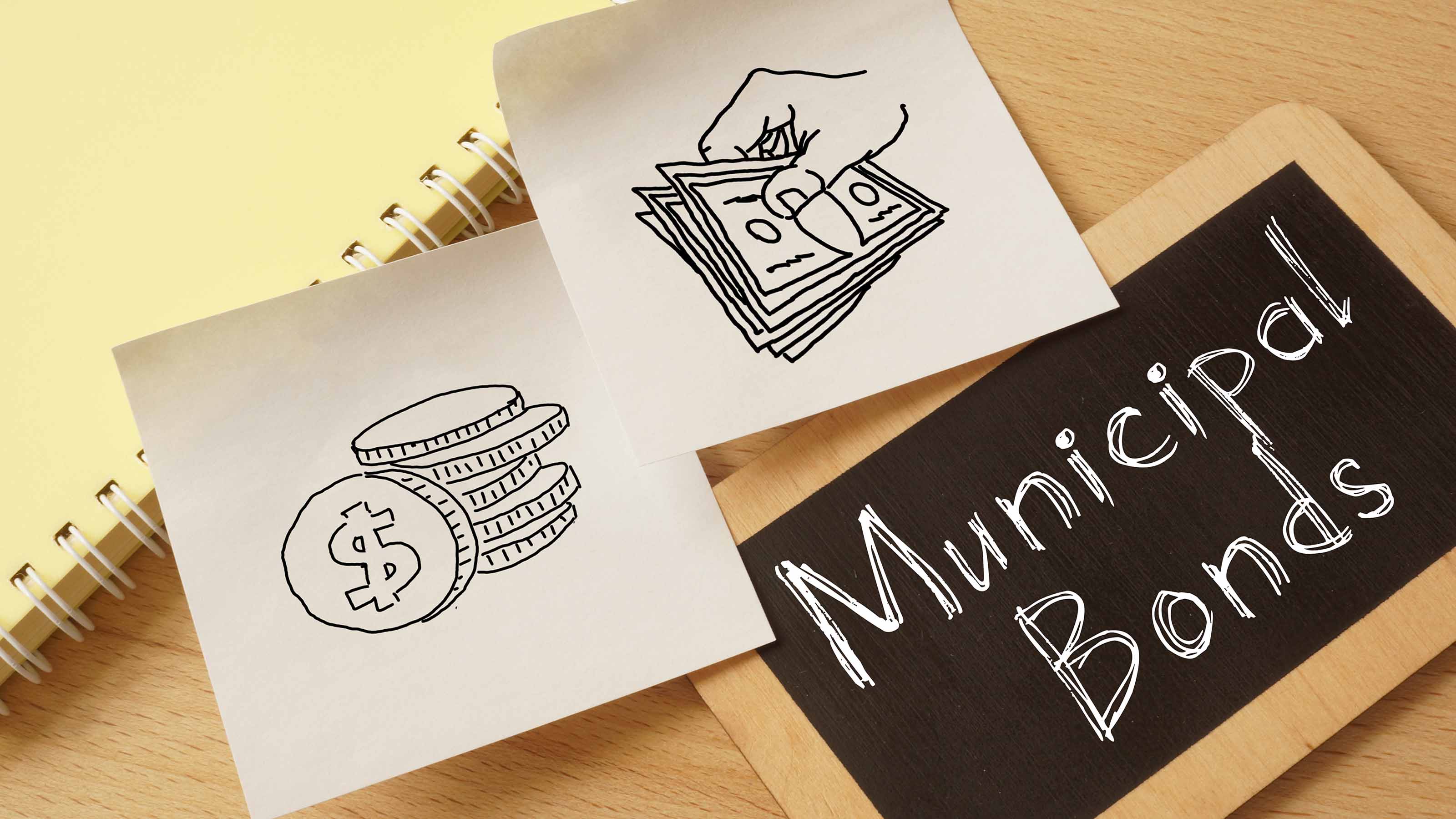Closed-End Funds Paying Up to 11% Yield
The trick to buying closed-end funds is to pick them up them at a discount from their net asset value.

Profit and prosper with the best of Kiplinger's advice on investing, taxes, retirement, personal finance and much more. Delivered daily. Enter your email in the box and click Sign Me Up.
You are now subscribed
Your newsletter sign-up was successful
Want to add more newsletters?

Delivered daily
Kiplinger Today
Profit and prosper with the best of Kiplinger's advice on investing, taxes, retirement, personal finance and much more delivered daily. Smart money moves start here.

Sent five days a week
Kiplinger A Step Ahead
Get practical help to make better financial decisions in your everyday life, from spending to savings on top deals.

Delivered daily
Kiplinger Closing Bell
Get today's biggest financial and investing headlines delivered to your inbox every day the U.S. stock market is open.

Sent twice a week
Kiplinger Adviser Intel
Financial pros across the country share best practices and fresh tactics to preserve and grow your wealth.

Delivered weekly
Kiplinger Tax Tips
Trim your federal and state tax bills with practical tax-planning and tax-cutting strategies.

Sent twice a week
Kiplinger Retirement Tips
Your twice-a-week guide to planning and enjoying a financially secure and richly rewarding retirement

Sent bimonthly.
Kiplinger Adviser Angle
Insights for advisers, wealth managers and other financial professionals.

Sent twice a week
Kiplinger Investing Weekly
Your twice-a-week roundup of promising stocks, funds, companies and industries you should consider, ones you should avoid, and why.

Sent weekly for six weeks
Kiplinger Invest for Retirement
Your step-by-step six-part series on how to invest for retirement, from devising a successful strategy to exactly which investments to choose.
Similar to more-popular ETFs, closed-end funds hold baskets of securities, such as stocks or bonds. But, unlike with ETFs, the share prices of closed-end funds tend to diverge much more from the underlying value of their assets. As a result, closed-ends often trade well above or below their net asset value (NAV) per share. When a fund trades below its NAV, the discount is like a margin of safety, similar to buying a dollar’s worth of assets for 90 cents. Ideally, you want to buy a closed-end fund when it sells at a discount to NAV and wait for that discount to narrow, or even turn into a premium, enhancing the returns you get from the performance of a fund’s assets.
Earnings for All
- Bank Accounts: 1%-4%
- Municipal Bonds: 1%-3%
- Investment-Grade Bonds: 3%-5%
- Real-Estate Investment Trusts: 2%-6%
- Foreign Bonds: 3%-6%
- Preferred Stocks: 4%-7%
- High-Yield Bonds: 6%-8%
- Master Limited Partnerships: 5%-11%
Risks to your money. Many closed-ends borrow money to buy securities. That additional debt, which can exceed 30% of a fund’s assets, pumps up the yield but can amplify losses. If interest rates increase, it can be a double-whammy: Many closed-end funds hold bonds and other interest-sensitive securities that would lose value, and the cost of their own debt would increase. One other caveat: Some funds aim to hit distribution targets each month, and if they can’t meet their goal with income or investment gains, they pay out capital. Essentially, that means they may give investors some of their money back as distributions, a practice that can erode the share price over time.
Hire a pro. If you’d rather not pick individual funds, a couple of ETFs can do it for you. The PowerShares CEF Income Composite Portfolio (PCEF, $22, 8.3%) holds a basket of 145 income-oriented funds that invest mainly in corporate and high-yield bonds. It recently traded at an 8.9% discount to NAV. Encompassing a broader mix of funds, the YieldShares High Income ETF (YYY, $18, 10.6%) keeps about two-thirds of its assets in bond funds and the rest in stock funds. The ETF trades at a slight premium to its NAV. (All prices and returns are as of March 31.)
From just $107.88 $24.99 for Kiplinger Personal Finance
Become a smarter, better informed investor. Subscribe from just $107.88 $24.99, plus get up to 4 Special Issues

Sign up for Kiplinger’s Free Newsletters
Profit and prosper with the best of expert advice on investing, taxes, retirement, personal finance and more - straight to your e-mail.
Profit and prosper with the best of expert advice - straight to your e-mail.
Do it yourself. Nuveen Muni Market Opportunity (NMO, $14, 5.4%) holds more than 90% of its assets in investment-grade tax-free bonds. It trades at a 9% discount to NAV—an attractive price for a high-quality mix of bonds, says John Cole Scott, chief investment officer of Closed-End Fund Advisors, an investment firm in Richmond. For top earners, the 5.4% tax-free yield is equivalent to 9.5% from a taxable security.
If you can handle more risk, go for Advent Claymore Convertible Securities & Income (AVK, $13, 8.5%). Holding convertible securities and other types of debt, the fund trades at a deep, 15% discount. Also compelling, says Scott, is Nuveen Diversified Real Asset Income (DRA, $16, 10.0%), which holds real estate investment trusts, preferred securities and bonds. The fund trades at a 15% discount to NAV.
Next: High-Yield Bonds to Earn 6% - 8%
Profit and prosper with the best of Kiplinger's advice on investing, taxes, retirement, personal finance and much more. Delivered daily. Enter your email in the box and click Sign Me Up.

-
 Nasdaq Leads a Rocky Risk-On Rally: Stock Market Today
Nasdaq Leads a Rocky Risk-On Rally: Stock Market TodayAnother worrying bout of late-session weakness couldn't take down the main equity indexes on Wednesday.
-
 Quiz: Do You Know How to Avoid the "Medigap Trap?"
Quiz: Do You Know How to Avoid the "Medigap Trap?"Quiz Test your basic knowledge of the "Medigap Trap" in our quick quiz.
-
 5 Top Tax-Efficient Mutual Funds for Smarter Investing
5 Top Tax-Efficient Mutual Funds for Smarter InvestingMutual funds are many things, but "tax-friendly" usually isn't one of them. These are the exceptions.
-
 What Fed Rate Cuts Mean For Fixed-Income Investors
What Fed Rate Cuts Mean For Fixed-Income InvestorsThe Fed's rate-cutting campaign has the fixed-income market set for an encore of Q4 2024.
-
 The Most Tax-Friendly States for Investing in 2025 (Hint: There Are Two)
The Most Tax-Friendly States for Investing in 2025 (Hint: There Are Two)State Taxes Living in one of these places could lower your 2025 investment taxes — especially if you invest in real estate.
-
 The Final Countdown for Retirees with Investment Income
The Final Countdown for Retirees with Investment IncomeRetirement Tax Don’t assume Social Security withholding is enough. Some retirement income may require a quarterly estimated tax payment by the September 15 deadline.
-
 Dividends Are in a Rut
Dividends Are in a RutDividends may be going through a rough patch, but income investors should exercise patience.
-
 Municipal Bonds Stand Firm
Municipal Bonds Stand FirmIf you have the cash to invest, municipal bonds are a worthy alternative to CDs or Treasuries – even as they stare down credit-market Armageddon.
-
 Best Banks for High-Net-Worth Clients
Best Banks for High-Net-Worth Clientswealth management These banks welcome customers who keep high balances in deposit and investment accounts, showering them with fee breaks and access to financial-planning services.
-
 High Yields From High-Rate Lenders
High Yields From High-Rate LendersInvestors seeking out high yields can find them in high-rate lenders, non-bank lenders and a few financial REITs.
-
 Time to Consider Foreign Bonds
Time to Consider Foreign BondsIn 2023, foreign bonds deserve a place on the fringes of a total-return-oriented fixed-income portfolio.